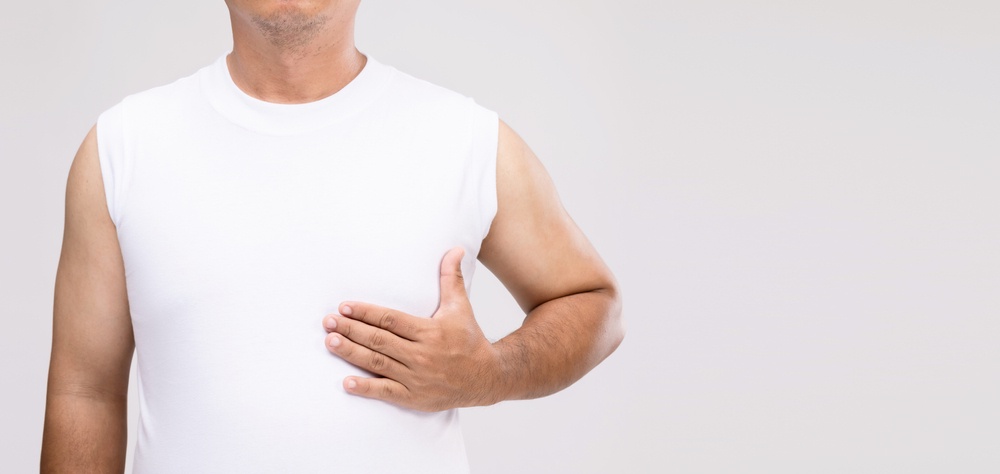Gynecomastia is the condition of enlargement of breast tissues in males. It can affect one or both breasts and is typically caused by an imbalance between the hormones estrogen and testosterone.
If you suspect you have gynecomastia or experience breast enlargement, it's important to consult the best gynecomastia surgeon in Coimbatore. They can help you to determine the underlying cause and recommend appropriate treatment options.
It can be caused by various factors, many of which involve hormonal imbalances. Here are we listed the causes of gynecomastia:
Hormonal Changes:
The imbalance between Estrogen and Testosterone: Gynecomastia often arises from an imbalance between the male sex hormone testosterone and the female sex hormone estrogen. If estrogen levels are relatively high or if there is a decrease in testosterone, it can lead to breast tissue enlargement.
Puberty: During puberty, hormonal fluctuations can cause temporary gynecomastia in many boys.
Aging: As men age, testosterone levels might decrease while estrogen levels remain relatively stable, potentially leading to gynecomastia.
Medications:
The medications cause side effects in men which decrease their breast sizes include:
Anti-androgens: Drugs used to treat prostate cancer or certain hormonal conditions.
Anabolic steroids: Often used by athletes and bodybuilders, these can disrupt hormonal balance.
Anti-ulcer medications: Proton pump inhibitors (PPIs) and H2 blockers.
Some antipsychotic medications.
Some anti-depressants.
Certain cancer treatments.
Hormone therapies.
Health Conditions:
Conditions affecting hormone balance, such as hypogonadism (low testosterone production), hyperthyroidism (overactive thyroid), and Klinefelter syndrome (extra X chromosome), can contribute to gynecomastia.
Chronic kidney disease and liver disease can disrupt hormone metabolism and contribute to gynecomastia.
Lifestyle Factors:
Substance Use: Use of certain drugs and substances, including marijuana, anabolic steroids, and excessive alcohol, can lead to gynecomastia.
Obesity: Excess body fat can result in higher estrogen production, contributing to gynecomastia.
Herbal Supplements and Natural Remedies:
Some herbal products and natural remedies contain compounds that can mimic estrogen or interfere with hormone balance, leading to gynecomastia.
Unknown Causes:
In some cases, the specific cause of gynecomastia might not be identified.
Treatments for gynecomastia:
Several gynecomastia treatment options that may be considered. Treatment may involve addressing any underlying health conditions, adjusting medications, or, in some cases, surgery to remove excess breast tissue.
Observation and Monitoring:
In some cases, especially when gynecomastia is due to normal hormonal changes during puberty, no treatment may be necessary. The condition might resolve on its own as hormone levels stabilize.
Medication:
If gynecomastia is caused by certain medications or underlying medical conditions, addressing the underlying cause can help reduce breast tissue enlargement.
In some cases, medications such as tamoxifen or raloxifene, which are selective estrogen receptor modulators, might be prescribed to help reduce breast tissue growth. However, the effectiveness of these medications can vary.
Surgery:
Surgical intervention is considered when gynecomastia doesn't resolve on its own or when it causes significant physical discomfort, emotional distress, or embarrassment.
Liposuction: If gynecomastia is primarily due to excess fatty tissue, liposuction might be performed to remove the excess fat. This is typically an option when breast tissue is not the primary cause.
Excision: If there's a significant amount of glandular tissue present, surgical excision might be necessary. This involves removing the excess breast tissue through a small incision.
Combination Approach: In some cases, a combination of liposuction and excision might be used to achieve the best results.
Lifestyle Modifications:
Addressing underlying factors that contribute to gynecomastia, such as stopping the use of substances like marijuana or anabolic steroids, and maintaining a healthy weight through diet and exercise, might help prevent or alleviate the condition.
Psychological Support:
Gynecomastia can have a psychological impact, leading to self-consciousness and lowered self-esteem. Psychological support and counseling can be beneficial for individuals dealing with these emotional aspects.
Wrapping up:
Gynecomastia treatment should be tailored to the individual's specific situation, age, and financial situation. Consulting with a qualified gynecomastia doctor in Coimbatore, such as a primary care physician or a specialist in endocrinology or plastic surgery, is essential to determine the most appropriate treatment plan.


No comments yet